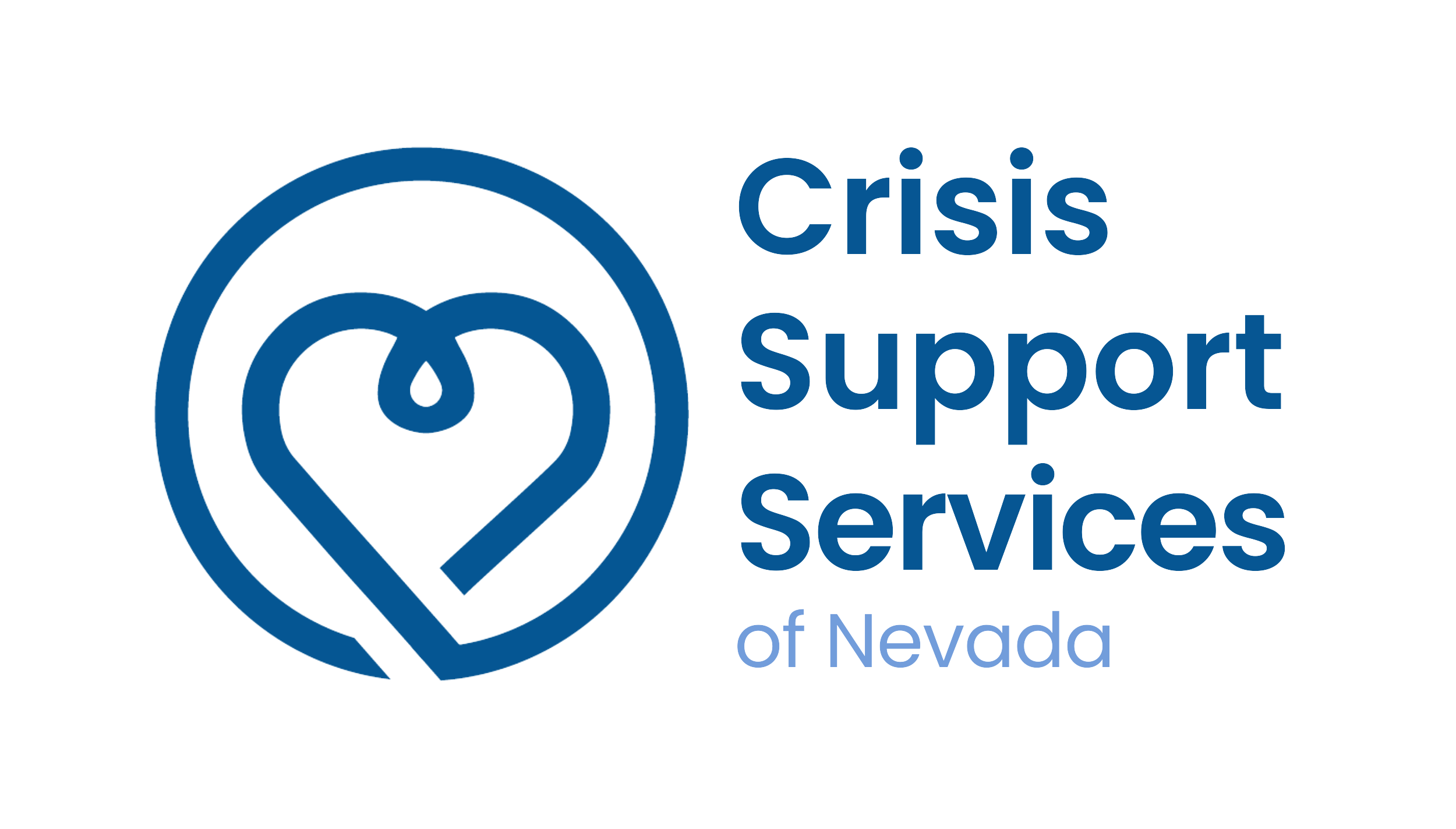Domestic violence comes in many forms and does not discriminate among victims or offenders. If you are a victim, remember this is not your fault.
If you or someone you know is experiencing domestic violence, we are here to help you through your darkest moments to get to a better tomorrow. Call our domestic violence hotline at 775-221-7600 or text “VSU” to 839863 for free, confidential support. If you are looking for a safe haven to escape domestic violence, you can find a domestic violence shelter near you. Resources and support are available across the state of Nevada.
Looking for a domestic violence shelter?
Explore resources throughout Nevada and the U.S.
Get Domestic Violence Help
Acts of intimidation, abuse and domestic violence can leave us feeling powerless and alone. Crisis Support Services of Nevada is a place for you to turn to discuss your options or experiences and to ensure you are safe and heard. Our advocates are available 24 hours a day, seven days a week, 365 days a year and will never pressure you to report a crime or do anything you are uncomfortable with. We are here as a judgement-free resource, empathetic ear, caring heart and helping hand in your time of need.
If you are experiencing domestic violence or abuse, we can provide immediate crisis intervention and support you in the aftermath of trauma. We can accompany you to the hospital or law enforcement, if you’d like us to, as well as provide personal advocacy, refer you to counseling and criminal justice support, and assist in filing all available victim compensation applications.
Call 775-221-7600 or text “VSU” to 839863 to get domestic violence help any time, day or night, 365 days a year.
Looking for Resources?
Visit our resource list to explore various resources across Nevada including emergency shelter, financial assistance, legal services, therapy and counseling, and more.
Warning Signs of Domestic Violence
The signs of domestic violence are not always straightforward, and may not present themselves at the very beginning of a relationship. Many times, abuse builds and becomes more powerful over time. The signs and signals of abuse can also be unique, just like each relationship has unique qualities.
In general, if you answer “yes” to any of the following questions you or someone you love may be experiencing domestic violence:
- Do you ever feel afraid of your partner?
- Do you feel as though you’re getting unwanted attention?
- Do you feel as though your boundaries are not being respected?
- Do you feel like you’re being kept away from your friends and loved ones?
Other common signs of domestic violence include:
- Constantly putting you down or making you feel ashamed
- Extreme jealousy or anger when you are with friends or family
- Keeping you away from family, friends, work or school
- Pressuring you to have sex when you don’t want to
- Keeping control of your money and household expenses
- Threatening to hurt or take your children or your pets
- Harming you or your children physically (punching, kicking, using weapons, etc.)
- Preventing you from calling law enforcement
- Blaming you for bad things that happen
- Controlling what you wear, who you see, and how you act
Nobody deserves to experience any type of domestic violence or abuse. If you've answered “yes” to any of these questions, call our domestic violence hotline to get domestic violence help. Contact us at 775-221-7600 or text "VSU" to 839863 for free, confidential support at any time.
What is Domestic Violence?
Domestic violence, also called intimate partner violence (IPV), domestic abuse or relationship abuse, is a pattern of behaviors used by one partner to maintain power and control over another partner in an intimate relationship. This behavior can come in many forms, including intimidation, emotional abuse, isolation, making light of the abuse or denying it all together, victim blaming, leveraging children, economic abuse, coercion and outright threats. To learn more about these behaviors, explore the Power and Control Wheel.
Report Domestic Violence
If you are experiencing domestic violence or suspect someone that you love is a victim of domestic violence, there are many resources available to help. To get started, you can contact Crisis Support Services of Nevada, or you can go directly to law enforcement to report domestic violence.
If you are in an emergency situation, you can call 911 and file a report with the responding officers. You may also contact your local Victim Services Unit or Special Crimes Unit for help reporting domestic violence.
The Las Vegas SafeNest Domestic Violence Hotline can be reached at 702-646-4981. In Reno, you can contact the Reno Police Department Victim Services Unit at 775-657-4519. To find resources in your area, contact us at 775-221-7600 or text “VSU” to 839863.
Victims deserve to be believed. If you do not receive the support you need from police, find a local domestic violence shelter that can help you find a safe, secure place to stay.
Help a Victim of Domestic Violence
Helping someone you care about who is in an abusive relationship can be complicated. Sometimes the best way to help is to be supportive and allow your loved one to feel safe and empowered to step forward on their own. The tips below can help you if you suspect domestic violence:
Empathize
Understand the difficulty of their situation and provide support where you can. If your loved one continues in an abusive relationship, understand that there are many reasons for doing so.
Empower
When possible, give your loved one the resources and confidence to reach out for help.
Engage
If your loved one remains in an abusive relationship, help them create a safety plan. If they leave, be sure to actively keep them in their support system.
Are you a student?
We offer on-campus support for domestic violence survivors.
FAQs About Domestic Violence
Yes. Domestic violence does not discriminate. It spans all races, genders, ethnicities, sexual orientations and socioeconomic backgrounds.
As a loved one witnessing domestic violence, it can be difficult to know how to help. Understanding that the decision ultimately lies with your loved one is key. You can support them by being non-judgmental of their decision to stay, helping them prepare to leave regardless of whether they do and by standing by to help provide support if they make a decision to leave. You or your friend can always call the Crisis Support Services of Nevada, anonymously, to discuss your concerns.
Only “mandated reporters” such as doctors, nurses and teachers are obligated to report domestic violence. This also applies if a victim is under 18 years of age. While it is in your best interest to remove yourself from danger, and to report your abuse, you are not obligated and we will never pressure you to do so.

